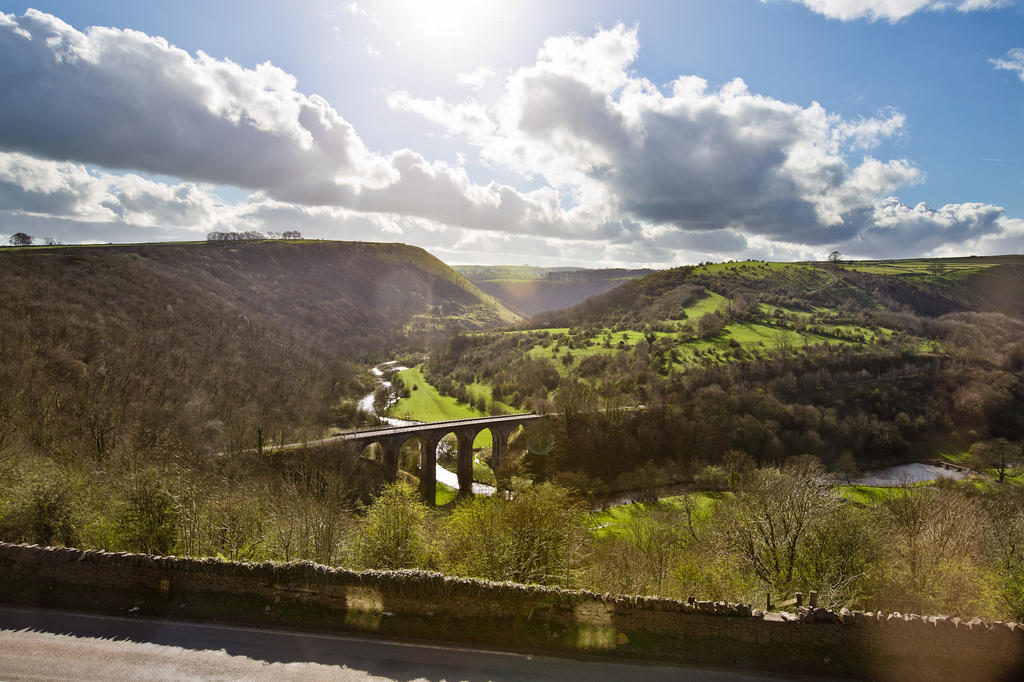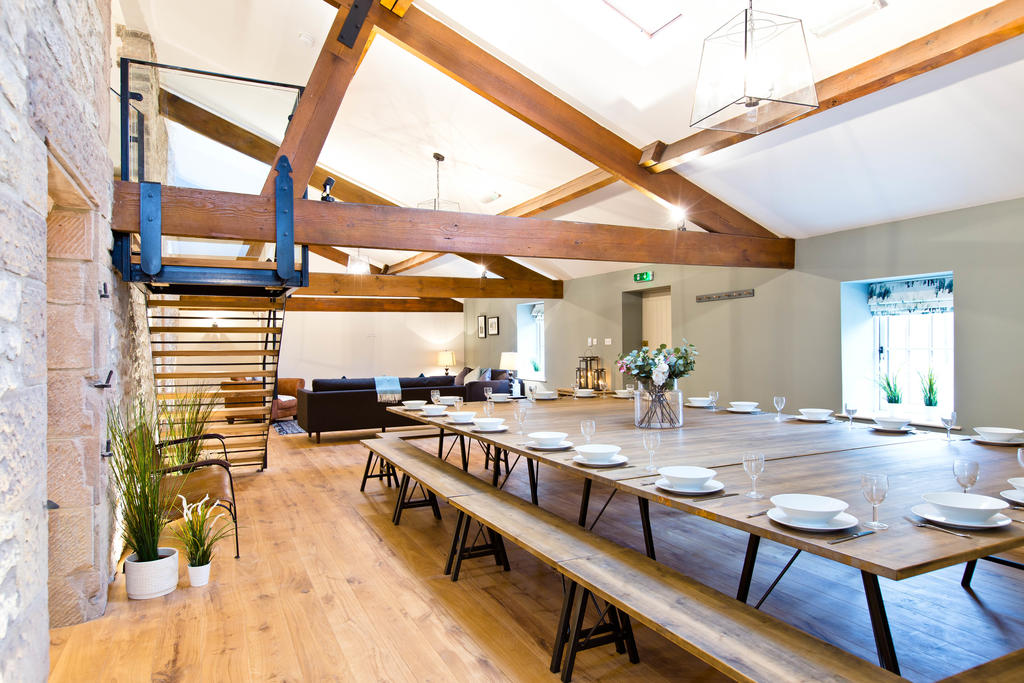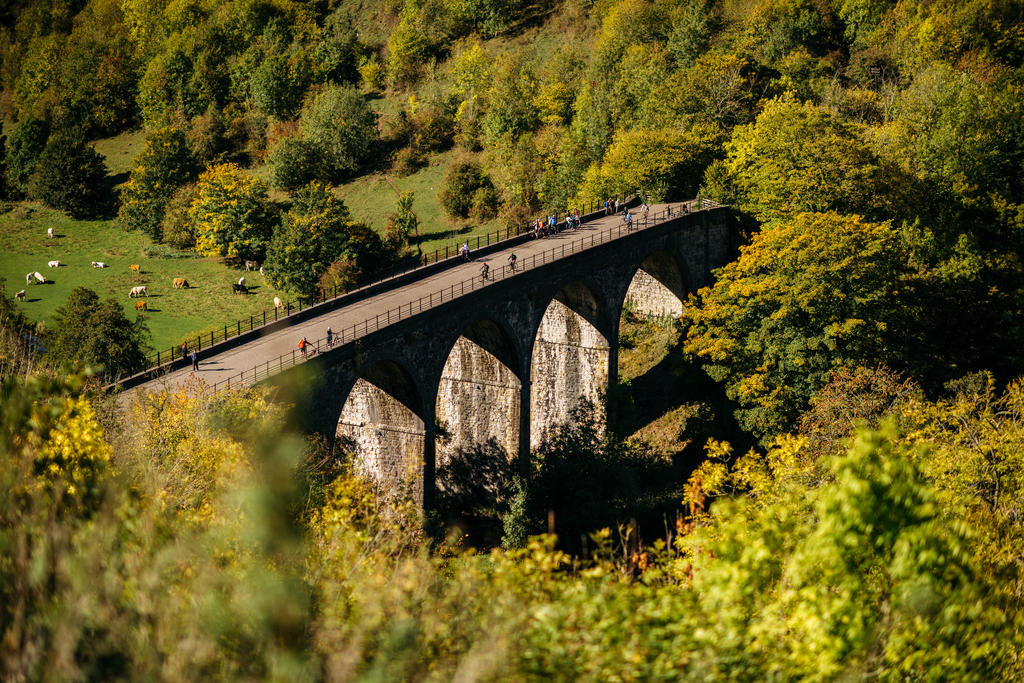Peak Venues Step-by-Step Guide to Planning the Perfect Corporate Retreat. So you've been tasked with organising a corporate retreat for your company...Lucky you! But you're probably now wondering if people will enjoy it? Will it be memorable? Will it get results?
This blog will run through a step-by-step guide on how to plan the perfect team building experience that meets the expectations of employees and senior management. Let's get started.
For those already ready to book, please see our corporate venues page or submit a corporate enquiry.
It's all in the Preparation
The very first decision you need to make is whether you want to organise the retreat yourself or call in outside help from a professional team building company. Hiring a specialist is of course the easiest option in that you can give them a budget, some preferred dates and locations and let them get on with it.
If you are reading this guide, it's a safe bet you are doing the organising so let's start with a key question:
What is the Ideal Length for a Corporate Retreat?
For teams that work in the same location, a 3-4 day retreat is probably the right length, especially if transport is provided for the whole group so that they arrive and leave at the same time.
If you have colleagues arriving from remote or distributed offices, you may want to allow an extra day for travel at each end to allow everyone to settle in. Depending on the size and nature of your company, you will have to decide whether to run the retreat over a weekend or entirely during the working week. And don't forget there will have to be cover to ensure the company can run while people are away!
People value their weekends as a time for themselves and their families and may not appreciate an organised event during their special time. If you must run the event over a weekend, it is crucial that the time is given back as holiday allocation at some other time in the year.
Set up a Planning Committee to Share the Workload
There's no doubt that that organising a retreat by yourself is hard work, so set up a small team of organisers to divide and conquer. Split tasks into bite-sized chunks and allocate them to committee members. Using online organisational software like Trello makes this super easy!
Organise any Trainers, Speakers and Entertainers
Good trainers, speakers and entertainers are often fully booked months in advance, so get them booked early and, if they're really good, perhaps organise your retreat around their availability. So, your company's budget doesn't run to hiring trainers or speakers?
Why not look inwards and identify people already working within the business who have skills, hobbies, or talents that they would be happy to share with the team. Perhaps there's a great photographer in your midst? Or a musician? Or a yoga fanatic?
You may be pleasantly surprised by the diversity of talent within the organisation that just needs an opportunity to show itself...
How do I get people fired up about a Corporate Retreat?
Well, in the same way that Hollywood gets people excited about a film, you can create a trailer or teaser. Put together a short series of video clips and photographs of some of the activities and locations your team will encounter during the retreat.
This doesn't need to be to Hollywood standards - a simple PowerPoint slideshow or YouTube video will do the trick and there's bound to be someone in the organisation that would relish the challenge of putting this together. Which brings us on neatly to...
Ask Volunteers to Photograph/Film your Retreat or Hire someone in?
A corporate retreat should become a regular event and so to make the next one easier, it makes sense to record the event either on video or through photos. Again, there may be someone in your organisation that would jump at the chance to do this but if not, either hire a professional or make sure that as many attendees as possible take photos and videos on their phones that can be collated and edited later.
19 Ideas for your Corporate Retreat
We've split this next section into daytime and evening activities.
DAYTIME
1. All Hands Meeting
Once everyone is settled into the accommodation, there should be a meeting for all attendees led by the most senior delegate. This meeting should set out the aims of the retreat, run through the itinerary and basically set the scene for the entire event.
Included in this meeting should be basic health and safety information, house rules and terms of acceptable behaviour. It's a good idea to introduce any team leaders and those responsible for particular activities.
2. Team Talks
Depending on the size of your company, there may be several teams from differing areas in the business attending the retreat. Team leaders may find it useful to hold a meeting to define the goals for that specific group and again to highlight any activities that will be of particular relevance to them.
3. No Holds Barred Open Forum
Some companies are more open than others to this kind of forum, but it can be incredibly useful to clear the air and allow for a transparency that's all too rare in businesses. An open forum should be exactly that - any grievances should be heard and taken in a spirit of calm understanding.
While no one should be made to feel afraid to make their feelings known, it can be useful to write down any issues anonymously and then for those issues to be discussed around the table. Hosting an open forum towards the beginning can create a great framework for the rest of the retreat as people take on board what was said and work it into their subsequent interactions.
4. Races, Bridge Building And Classic Team Building Activities
When you think of team building activities, do you immediately picture groups of awkward colleagues attempting to traverse lawns using only wooden planks, plastic water butts and rope? Or perhaps a small gathering of accounting staff, standing arms raised beneath a platform as a blind-folded colleague nervously drops backwards into their arms?
It's a cliche but one that in many cases actually works! There are hundreds of resources online to help plan these types of activities and many team-building companies are built up around them. For the right type of business, this might be just what's needed to bring team members together - for others, the last thing they would consider doing!
5. Group Treks And Walks
The value of walking for the health of both mind and body is undeniable. In a recent article, Ryan Holiday states:
"Researchers at Stanford have found that walkers performer better on tests that measure “creative divergent thinking” during and after their walks." A traditional stomp in the countryside with a group is a perfect way to get know each other better.
There's time to talk one to one or within a small group and then it's easy to move around the group to get to know someone else. Moving together along a route to a common destination is also an excellent metaphor for the group as part of the company.
If you have selected your venue well, there should be plenty of walking routes straight from the front door. Try to find routes that avoid main or busy roads and make sure that at least one person in the group has an OS map and a compass in case there's no phone signal for GPS!
6. Silent Walks
It may seem odd to include silent walks as a part of a team building exercise, but time spent walking alone can give you the space to contemplate, gather your thoughts and clear your mind of some of the emotional clutter that build up during team activities.
Call it a reboot. A couple of these walks during a 3 or 4 day retreat can really help you to find perspective.
7. Cycling
Everyone can see that cycling is big at the moment. Drive any distance in the UK countryside and you will come across some Lycra-clad "athletes" (aka MAMILs) pounding up hill and down dale.
We're here to tell you that Lycra is optional, there are plenty of safe, flat cycle tracks and you can even hire electrically assisted bikes if the last time you rode was when you were 11. Much like a long walk, a cycle trip with others is a great way to get to know each other and achieve a common goal - a pub lunch for example!
If you have a mixed ability group, split up to allow the racers to do their own longer routes with a short route for the more sedate pedallers. Tales of the road make for great conversation in the evening...
8. Abseiling
Team building is all about trust in one another, allowing others to help and support you through testing times and working together towards common goals. Abseiling encompasses all three of these aims.
There will be a number of people in your group who would do pretty much anything rather than have to stand at the edge of a cliff, backwards and bounce their way down. Some of these people will grit their teeth and get stuck in while others will find it an impossible challenge. Persuading and supporting the reluctant will be as crucial to the team-building exercise as the abseiling itself - this one activity may transform your teams.
9. Yoga And Meditation
Most people are familiar with yoga and meditation but surprisingly few have tried either in a guided setting. Both of these activities can be life-changing and life-long skills that will benefit not just the individuals but also the business as a whole.
Unless you happen to have a yoga teacher or expert in meditation amongst your workforce, these are activities where you will have to bring in trainers. Running sessions at either end of each day gives your people a chance to develop a habit of mindfulness over the period of the retreat that will hopefully remain with them for months and years to come.
10. Off-road 4x4 driving
Sitting in the back of a 4x4, looking through the windscreen at only sky as a colleague teeters the vehicle over the edge of a steep drop...this is not the time for trust issues! A 4x4 experience day may seem like a lot of fun (and it is) but there can be some serious team building skills involved here.
As well as taking responsibility for others while you're in the driving seat, you have to learn to let go when others are driving you. For the best effect, mix senior and junior staff in the vehicle so that everyone gets to lead and be led.
11. Dry Stone Walling
An ancient countryside craft that is still practiced in the Peak District, and an activity that is so much more rewarding than it might at first seem. Working in small groups with a qualified instructor, building a dry stone wall is like doing a jigsaw puzzle with no cover art.
Combine problem solving with plenty of fresh air, often in remote silence and you have a near meditative experience.
12. Landscape Photography With Mobiles
Let's face it, all of us have smartphones and most of us would love to know how to take better photos with our phones' camera. Professional photographers have an "eye" for composition, lighting and impact and so organising a photo safari with a pro can be very rewarding.
As a group, discussing, supporting (perhaps laughing at) our efforts to capture the beautiful countryside is a great way to build friendships that last beyond the duration of the retreat. If you're lucky, there may be a keen and skilled amateur photographer within your ranks that would love to lead a group out into the field, but if not, there a numerous local photographers running landscape photography courses, you could hire to instruct the group.
13. Clay Pigeon Shooting
Introducing some competition into a corporate retreat is a sure way to get people excited about team work. Clay pigeon shooting is a very direct and visual way to see success and failure - you either hit a clay or not!
A few of your people may have tried clay pigeon shooting but the majority won't so if you set up a couple of teams of mixed abilities there should be friendly competition and hilarity in equal measure.
14. Paintballing
Staying with the shooting at things theme, paint-balling is perhaps the definitive team-driven activity. Paintballing is not for everyone and those who don't wish to take part must be allowed to do an alternative activity.
A certain level of fitness is required and if you don't like mud or getting splatted with paint this is not the activity for you. For those who are taking part, it's best to mix up teams from different areas of the business, building links and team work between departments.
15. Horse Riding
Pony-trekking or horse-riding sits alongside cycling and walking as a group activity that gets people out into the fresh air with a chance to chat to less well known colleagues.
Add in the fact that many of your team will not have sat on a horse before and you have the makings of a challenge as well as a social activity that should create long-lasting memories and bonds.
16. Short Project To Help A Charity
The most rewarding of all the activities, completing a project that helps a local charity is just a win-win all round.
The project must be agreed with the charity ahead of the event and should not be too ambitious - it's vital that your teams can deliver within the timeframe of the retreat. Examples might be:
- clearing a play area for the children at a local playgroup
- designing a brochure for a hospice
- organising a musical event for residents of a care home
EVENINGS
The temptation on any corporate trip is for the evenings to descend into an inhibition-losing, drunken haze with the inevitable embarrassing morning after. Don't let this happen to your event!
Yes everyone wants to wind down after a busy day and no one is suggesting a tee-total evening, but with a bit of structure around an organised activity, you can have fun and still hold your head high the next day.
17. Karaoke
Karaoke is one of those activities that fills most people with dread but once it gets underway, is enjoyed by almost everyone. There's usually a handful of closet singers that will get things underway and once the ice has been broken, there will be a queue of wannabe Tom Jones, Ed Sheeran and Adele waiting to perform.
Karaoke also presents a great opportunity for senior staff to perhaps (make fools of themselves) perform in front of their teams and show their lighter side.
18. Cook Dinner For Others
Sharing a meal is a universal act of friendship and togetherness. Putting together small teams to cook for the rest each evening not only shares the burden for catering, but brings together the company in a way that few other activities can.
As with most activities, it helps to have at least one person in each team who has some skills but even if there are no budding Gordon Ramseys in your company at all, most people can follow a recipe if they put their minds to it.
19. Bring In An Entertainer Or Musician
As a special treat, why not organise for a local musician, comedian or magician to perform for all the attendees. This can work very well as a surprise, especially if there's some audience participation involved.
If your company budget doesn't stretch to buying in entertainment, perhaps there's a musician or amateur magician amongst your workforce that you didn't know about?
I Hate Corporate Retreats - What Do I Do?
For some people, the idea of a corporate retreat fills them with dread. Introverted members of your team may not benefit at all from activities like karaoke or paint-balling so it's important to organise alternative activities for "quieter" members of staff.
Allow time for solitary pursuits and ensure that there are areas of the venue that are set aside for quiet time. Ultimately, a corporate retreat exists for the benefit of the company as a whole as much as for its people, so how do you measure whether an event was a success?
Did You Achieve Your Goals?
The simplest way to measure success is to ask the people who attended the retreat. Set up a simple survey either on paper, by email or using online survey software. The survey should ask for feedback on all aspects of the retreat from location to venue to activities to training and speakers.
Allow space for attendees to suggest improvements and activities and training they would have liked to have seen. Make the survey anonymous so that any feedback is not traceable to individuals - that way you'll get much more honest and valuable responses.
If you provided polaroid cameras or asked attendees to take photos and videos on their phones, collate some of the better ones and create mementos of the retreat for attendees to keep.
This is a great opportunity to update your Facebook or Instagram account and also the About Us page on your website. Show your customers and prospective employees what a vibrant and fun place yours is to work.
As the years go by, this record of the company acts as a great recruitment tool. Actually Implement Some Of The Ideas Brought Up Over The Retreat. Ultimately, none of us want to feel that we've wasted our time and energy.
If even a single idea from a corporate retreat is developed and put into practice, all those who attended will feel it was worthwhile and be encouraged to attend the next event. So now it's over to you.
P.S.
Peak Venues have a wealth of experience, not only providing large group accommodation in beautiful Peak District settings, but also organising catering, activities and transport.
Published on August 1, 2021 in



